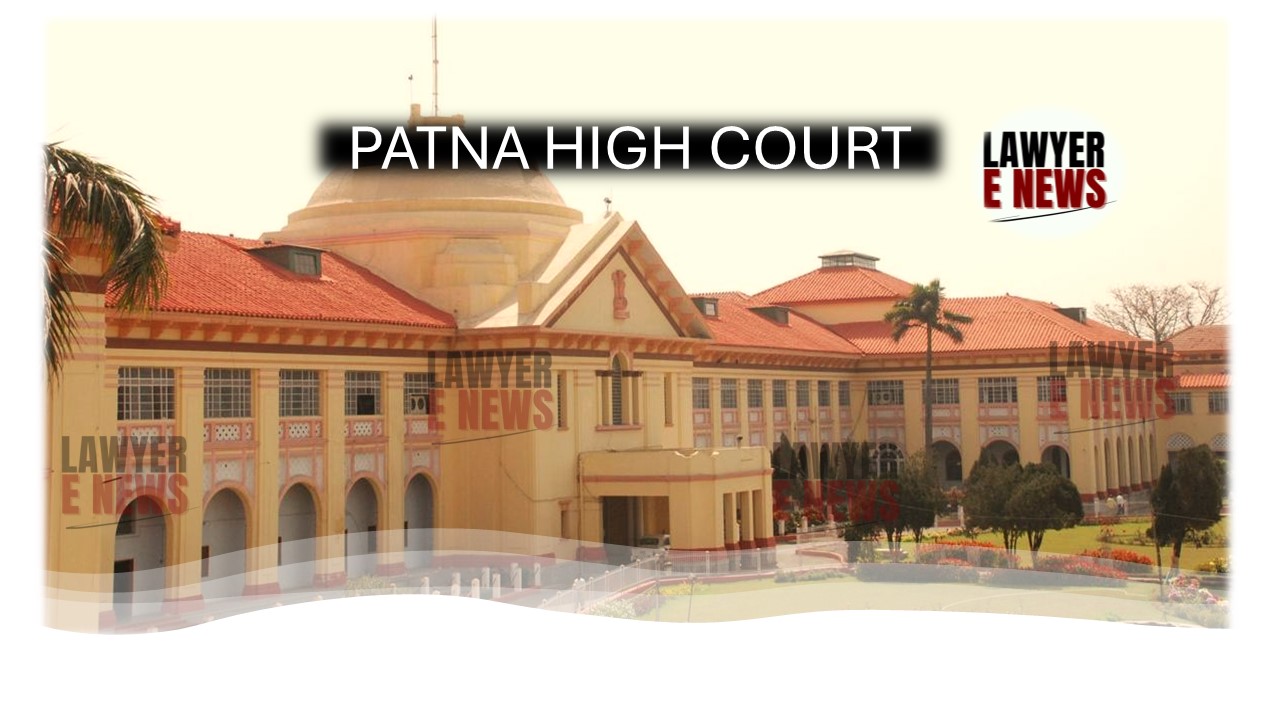-
by Admin
18 February 2026 2:25 PM



“Appellate Court Cannot Impose Sentence Beyond Magistrate’s Powers”— In a decision Patna High Court ruled that a victim is entitled to seek compensation in appeal even where the trial court has awarded none. Simultaneously, the Court held that the Sessions Court had exceeded its jurisdiction by enhancing the petitioner’s sentence to ten years, beyond the statutory limit of seven years that a Chief Judicial Magistrate could impose.
Justice Bibek Chaudhuri observed,
“Inadequacy of compensation includes its complete denial. The appellate court was well within its rights to entertain an appeal from the victim.”
However, he firmly added, “An appellate court cannot impose a greater sentence than what the trial court itself was legally empowered to award.”
The case arose out of a criminal complaint involving forgery, criminal breach of trust, and cheating, where the informant alleged that the petitioner, along with his associates, misrepresented himself as a landowner and induced a payment of nearly ₹3.88 crores in a fraudulent real estate deal. The petitioner was convicted under Sections 406, 420, 467, 468, and 120B IPC, and initially sentenced by the Chief Judicial Magistrate to various concurrent terms, including seven years under Section 467 IPC.
In appeal, the Sessions Court not only enhanced the forgery sentence to ten years, but also directed the petitioner to pay ₹61,47,800 as compensation under Section 357(3) CrPC, substituting the earlier fine.
Court’s Analysis on Compensation: Victim’s Right Survives Silence of Trial Court
The High Court held that the informant was within his rights to appeal for compensation under the proviso to Section 372 CrPC, even though the trial court had not awarded any. Relying on the Supreme Court’s ruling in Mallikarjun Kodagali v. State of Karnataka and the Gujarat High Court's Full Bench decision in Bhavuben Dineshbhai Makwana v. State of Gujarat, the Court noted: “A victim has the right to file an appeal seeking compensation, even where none has been granted by the trial court. Inadequacy under Section 372 includes absence.”
Rejecting the petitioner’s claim that compensation under Section 357(3) is barred if a fine has already been imposed, the Court clarified: “The mere imposition of fine does not preclude the court from awarding compensation under Section 357(3); the two are not mutually exclusive.”
On Sentence Enhancement: Sessions Court Acted Beyond Its Authority
The High Court struck down the enhanced sentence of ten years under Section 467 IPC, pointing out that the trial was conducted by a Chief Judicial Magistrate, whose sentencing power under Section 29 CrPC is capped at seven years.
“The appellate court cannot impose a sentence higher than the maximum which the trial court was competent to award. Doing so offends the statutory structure of appellate jurisdiction.”
Relying on the Supreme Court’s decision in Jagat Bahadur Singh v. State of M.P., the Court ruled that: “An appeal does not give the Sessions Court greater sentencing power than what was available to the trial magistrate. The law does not permit such escalation.”
On Due Process and Financial Inquiry Before Compensation
The High Court also faulted the Sessions Court for awarding ₹61.47 lakhs compensation without any inquiry into the petitioner’s financial capacity. Citing Manish Jalan v. State of Karnataka and Dilip S. Dahanukar v. Kotak Mahindra Co. Ltd., the Court reiterated:
“Before directing compensation under Section 357(3), the court must conduct—at minimum—a summary inquiry into the accused’s ability to pay. This safeguard was entirely ignored.”
It further noted the absence of any recorded mitigating factors such as the petitioner’s age, family condition, custodial period already undergone, and the pendency of trial since 2016.
The High Court partly allowed the revisions. It restored the original seven-year sentence under Section 467 IPC, quashed the ₹61.47 lakh compensation order, and affirmed that victims have the right to seek compensation on appeal even where trial courts remain silent.
Justice Bibek Chaudhuri concluded: “While the right of the victim to appeal was properly recognized, the Sessions Court violated statutory limitations both in terms of sentencing authority and due process before awarding compensation.”
Date of Decision: April 30, 2025
